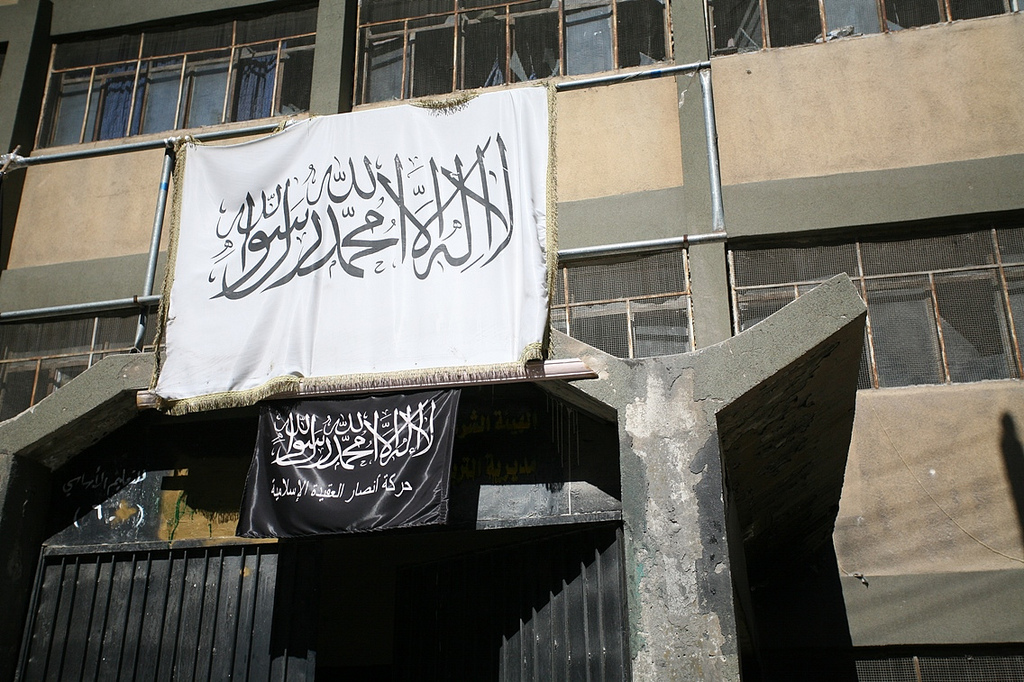World News
West-backed Syria rebels shaken on multiple fronts
BEIRUT — During a key battle in the rugged mountains of a northern province earlier this month, U.S.-backed Syrian rebels collapsed before an assault by al-Qaida fighters. Some surrendered their weapons. Others outright defected to the militants.
A detailed account of the battle in Idlib, from a series of interviews with opposition activists by The Associated Press, underscores how the moderate rebels that Washington is trying to boost to fight the Islamic State group are instead hemorrhaging on multiple fronts.
They face an escalated assault by Islamic extremists, which activists say are increasingly working together to eliminate them. At the same time, a string of assassinations has targeted some of their most powerful commanders.
“This is the end of the Free Syrian Army,” said Alaa al-Deen, an opposition activist in Idlib, referring to Western-backed rebel groups. “It’s the beginning of an Islamic emirate.”
Thousands of rebels have died fighting the Islamic State group this year, a war that has overshadowed and undermined the struggle to topple President Bashar Assad. Now the Nusra Front — al-Qaida’s branch in Syria, which previously was also fighting against the Islamic State group — has turned on more moderate factions. Two opposition figures told AP this week that Nusra Front and the Islamic State group have gone so far as to agree to work together against their opponents, though so far their forces have not been seen together on the ground.
Nusra’s pivot in part is in response to U.S. airstrikes, which have targeted the al-Qaida branch in addition to Islamic State militants, several activists said. Nusra has been hit three times in strikes the U.S. has said were aimed at a secret cell of high-ranking al-Qaida militants plotting attacks against the West. The strikes have ignited tensions between Western-backed groups and more extreme factions, who feel that that the Americans are hitting everyone except Assad’s forces.
In the fighting earlier this month, the Nusra Front drove U.S.-backed factions almost completely out of the northwestern province of Idlib, where they had been the predominant force. During the battles, two of the strongest Western-backed forces — the Hazm Movement and the Syrian Revolutionaries Front —were defeated and several other allied groups simply vanished.
The Syrian Revolutionary Front, headed by commander Jamal Maarouf, oversaw groups ranging from village-based militias to factions with hundreds of men. Around 10,000 to 20,000 fighters are estimated by activists to have been under his command.
The fighting began when a group of men in the Idlib village of Bara defected from a faction loyal to Maarouf and joined Ahrar al-Sham, an ultraconservative Islamist force.
Maarouf first sent his nephew to Bara to retrieve the men’s weapons but that mission failed. Then Maarouf ordered his fighters to surround and shell Bara, according to local journalist Muayad Zurayk, activists Mohammed al-Sayid and Alaa al-Deen, and another two activists from nearby Aleppo province.
Ahrar al-Sham asked the Nusra Front for help, and the conflict quickly spread. Other Islamist factions, Jund al-Aqsa and Suqour al-Sham, took Nusra’s side.
The Hazm Movement got involved when its fighters at a checkpoint halted Nusra militants trying to reach the battle. The Nusra fighters chased the Hazm men back to their stronghold, the nearby town of Khan Sunbul, which the extremists then overran. At least 65 Hazm fighters defected to the al-Qaida branch, the activists and a high-level Syrian opposition official based in Istanbul told AP.
Within days, Maarouf’s men and Hazm fighters were routed from most of the province, most fleeing into neighboring Aleppo. Around seven other allied factions melted away, according to three activists.
The activists identified the groups as Western-backed because they possess TOW anti-tank missiles, which they said only U.S.-supported groups have.
Washington announced this summer that it intends to arm Syrian moderates to fight the Islamic State group, but it is awaiting congressional approval. The U.S. has only acknowledged giving non-lethal aid to rebels, but the CIA has said it is running a training program in Jordan, and officials have said third parties have provided U.S.-made weapons to factions vetted by Washington.
“There was hope that they might prove to be an effective force in the crackdown on the al-Qaida presence in Syria — but that has been dashed,” said Aymenn al-Tamimi, an expert on rebel groups. “They are not strong enough.”
Western-backed groups are also being eroded in other ways. There has been a series of mysterious slayings targeting powerful rebel leaders fighting the Islamic State group.
The extremist group — and to a lesser extent the Nusra Front — are likely behind most of the killings, but Assad’s government has also increased pressure on moderate rebels since the start of the U.S.-led air campaign, said Torbjorn Soltvedt, Mideast analyst at risk advisory firm Maplecroft.
Among the recent apparent targeted killings:
— A suicide attack killed more than two dozen officials from the ultraconservative Ahrar al-Sham group, including its leader Hassan Aboud, while they were holding a meeting in Idlib province.
— A government airstrike on the northern town of Deir Sunbul, believed to be targeting Maarouf, killed his daughter.
— A car bombing in a Damascus suburb wounded Ahmad Taha, the leader of the Umma Army, and killed his son and nephew.
— A shooting in another Damascus suburb killed the commander of Fatah al-Sham, Fahd Mahmoud al-Kurdi.
— A bombing in Aleppo killed Omar Moussa, a Hazm Movement commander.
On Oct. 23, a gunman shot dead Ayman Abdul-Rahman, commander of the Liwa Tawheed group, inside an Internet cafe in the northern town of Hreitan, then walked out to a waiting getaway car, said Ibrahim Saeed, an Aleppo activist. Abdul-Rahman was one of the first commanders in the rebel Free Syrian Army to fight against the Islamic State group.
Now many rebel commanders are laying low, Saeed said. “We don’t know where they live or where they go or where they sleep.”
Associated Press writer Deb Riechmann contributed reporting from Istanbul.






















